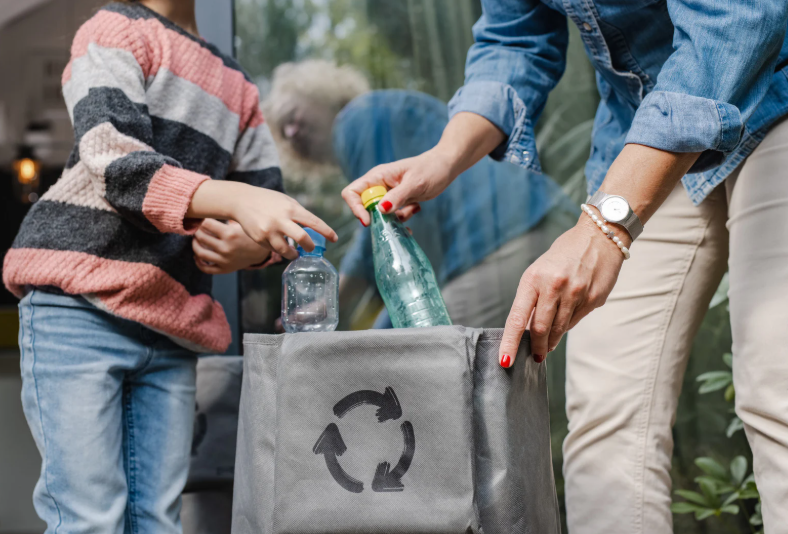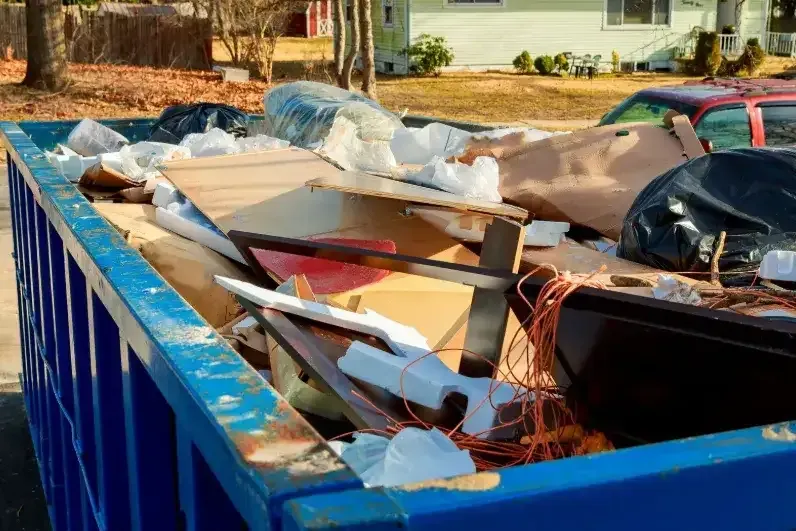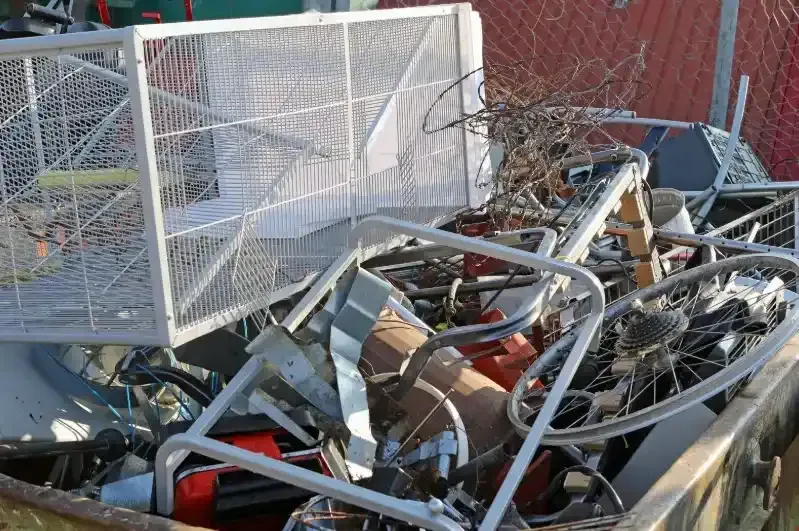Why Recycling Is the Most Responsible Option for Junk Disposal
When it comes to junk disposal, the most responsible option is undeniably recycling. As the global community becomes increasingly aware of the environmental challenges we face, the need for more sustainable waste management practices has never been more urgent. Junk removal is a necessary part of modern life, but how we choose to dispose of our unwanted items can have a lasting impact on the planet. The benefits of recycling in junk disposal are vast, ranging from reducing environmental pollution to conserving valuable resources.
Recycling is far from a simple task, and many people are unaware of just how much can be recycled or repurposed. Whether it’s old furniture, metal scrap, electronics, or even construction debris, there are numerous ways in which these items can be broken down and turned into something new. The process of recycling doesn’t just help reduce the amount of waste sent to landfills but also plays a critical role in preserving natural resources and minimizing the carbon footprint of industries that rely on virgin materials. Let’s take a closer look at why recycling is the most responsible choice when it comes to junk disposal.
Reducing Environmental Impact
The most obvious reason why recycling is the most responsible option for junk disposal is its ability to reduce environmental harm. Traditional waste disposal methods, such as landfilling and incineration, have long-lasting negative consequences on the planet. Landfills take up valuable land space and often leak harmful chemicals and toxins into the environment. These chemicals can contaminate soil, groundwater, and the air, causing irreparable damage to ecosystems. Moreover, when junk is burned in incinerators, the toxic gases released into the atmosphere contribute to global warming and the depletion of the ozone layer.
On the other hand, recycling minimizes these detrimental effects. By diverting waste from landfills and incinerators, recycling helps conserve natural resources like water, trees, and fossil fuels. For example, recycling paper reduces the need to cut down trees, which in turn helps protect wildlife habitats and reduces the impact of deforestation. Recycling metals, such as aluminum and steel, uses less energy compared to mining and processing virgin materials, and it reduces the carbon footprint associated with manufacturing new products.

Conserving Resources and Energy
The conservation of resources is another key benefit of recycling. Every material that gets recycled is one less that has to be harvested, extracted, or manufactured from scratch. Consider the vast quantities of raw materials required to produce new products. Recycling reduces the need for mining and drilling, which helps prevent the environmental degradation caused by these activities, such as habitat destruction and water pollution.
When we recycle metals, plastics, glass, and paper, we can reuse these materials in the production of new goods, reducing the demand for virgin resources. The energy savings associated with recycling are especially significant. For instance, recycling aluminum saves up to 95% of the energy required to create new aluminum from bauxite, a raw material. By recycling plastic, paper, and glass, we not only conserve natural resources but also reduce the energy consumption involved in producing these materials from scratch.
Encouraging a Circular Economy
Recycling also plays a vital role in encouraging a circular economy. In a traditional linear economy, raw materials are extracted, products are made, used, and then discarded. This “take, make, dispose” model is not sustainable in the long run. It puts immense pressure on natural resources and results in more waste accumulating in landfills. A circular economy, in contrast, focuses on keeping products and materials in use for as long as possible. This reduces waste and encourages the continuous recycling of resources.
By supporting the recycling process, we contribute to the creation of a circular economy. The more items that are recycled and reused, the less waste ends up in landfills, and the fewer raw materials are needed. This creates a more sustainable and efficient system where resources are continually reused and replenished. It’s a model that benefits both businesses and consumers, reducing costs and environmental impact while helping to maintain a balanced ecosystem.
Reducing the Strain on Landfills
Landfills are quickly becoming one of the most pressing environmental issues of our time. These enormous waste repositories are filling up at an alarming rate, consuming valuable land and releasing harmful gases like methane into the atmosphere. In fact, landfills are one of the largest sources of human-made methane emissions, which is a potent greenhouse gas. As more and more people generate waste, landfills become increasingly overburdened, and their environmental impact grows.
Recycling offers a clear solution to this problem. By diverting recyclable materials from the waste stream, we can significantly reduce the volume of trash that ends up in landfills. This not only prevents harmful gases from being emitted but also prolongs the lifespan of existing landfills. In many communities, recycling programs have led to a noticeable reduction in the amount of waste sent to landfills, proving that responsible disposal through recycling can have a significant impact on waste management.
Creating Jobs and Supporting Local Economies
In addition to the environmental and resource-saving benefits, recycling also offers a significant economic advantage by creating jobs in various sectors of the waste management industry. These jobs span from manual labor in sorting facilities to specialized positions in material recovery, waste management operations, and high-tech processing. In fact, the recycling industry is a major employer in many regions, offering steady, sustainable employment opportunities that help strengthen local economies. For example, recycling centers, waste collection services, and composting programs all require a workforce to handle the day-to-day operations that ensure proper waste management.
Local economies benefit further when recycling programs reduce the need for expensive landfills and incinerators. As municipalities increase their recycling rates, they can lower waste disposal costs, leading to more affordable waste management fees for both residents and businesses. This savings can be redirected into other essential community services. Additionally, recycling supports industries that repurpose and manufacture products from recycled materials, providing additional jobs and boosting local production. By participating in these programs, communities are investing in both environmental health and local economic growth.
Raising Awareness and Promoting Responsibility
The practice of recycling plays a pivotal role in fostering social responsibility and increasing awareness of sustainable practices. When communities engage in recycling programs, they not only help reduce waste but also develop a greater understanding of the environmental impact of consumption and disposal. This newfound awareness often extends beyond the community and influences individuals, families, and businesses to make more sustainable choices in their daily lives. Recycling helps cultivate a culture of sustainability where people take active steps to reduce, reuse, and recycle, and as a result, this leads to better waste management practices across all levels of society.
Furthermore, recycling encourages consumers to critically examine the products they purchase, especially when it comes to the sustainability of the materials used. Understanding that many everyday items can be repurposed or recycled into new products makes individuals more mindful of their purchasing habits. Supporting brands that prioritize sustainability, use recyclable materials, or offer eco-friendly products becomes an essential part of this cultural shift. The more people engage with recycling and responsible consumerism, the larger the collective effort toward creating a more sustainable and conscious economy.
The Challenges of Recycling
While the benefits of recycling are clear, there are several challenges associated with its widespread implementation. Recycling is not always an easy or efficient process—it can be energy-intensive, require significant sorting and processing, and involve managing different types of materials that are difficult to recycle. Some materials, such as certain plastics or mixed-metal items, pose particular challenges due to contamination or their complex chemical composition. These materials often end up contaminating other recyclables, undermining the effectiveness of the entire system. Additionally, many recycling programs are not available in all communities, leaving residents in some areas with limited options for properly disposing of recyclables.
To tackle these challenges, it is essential that we continue to improve recycling infrastructure and public education. Proper sorting and handling of materials can significantly increase the efficiency of recycling processes. Communities that invest in upgrading their recycling programs—such as expanding curbside collection services and establishing more accessible drop-off points—can ensure a broader participation rate and more successful recycling outcomes. Public awareness campaigns can also help educate consumers on how to properly separate recyclables and avoid contamination, leading to more efficient recycling efforts across the board. As these systems improve, recycling will become a more seamless, effective, and sustainable solution for waste disposal.
Conclusion
In conclusion, recycling is undeniably the most responsible and impactful option for junk disposal. The advantages it brings extend far beyond simply reducing waste; it plays a crucial role in decreasing environmental pollution, conserving valuable natural resources, and contributing to the global effort to combat climate change. Recycling supports the circular economy by ensuring materials are reused, preventing the depletion of finite resources, and minimizing the need for energy-intensive production processes. Moreover, it creates valuable jobs in recycling industries, strengthening local economies and fostering a more sustainable workforce.
By opting for recycling over traditional disposal methods, we can significantly decrease the strain on landfills and protect our ecosystems from the adverse effects of waste accumulation. Each small action we take toward responsible recycling contributes to a larger, collective effort to create a cleaner, greener world. To learn more about how recycling can streamline your junk disposal needs, reach out to Lasso & Load Junk Removal, located in Gwinnett County. They specialize in eco-friendly junk removal and recycling, ensuring that your unwanted items are handled with care for the planet. Contact them today at 404-227-2017 or email Lauren.renwickk@gmail.com for more information.









